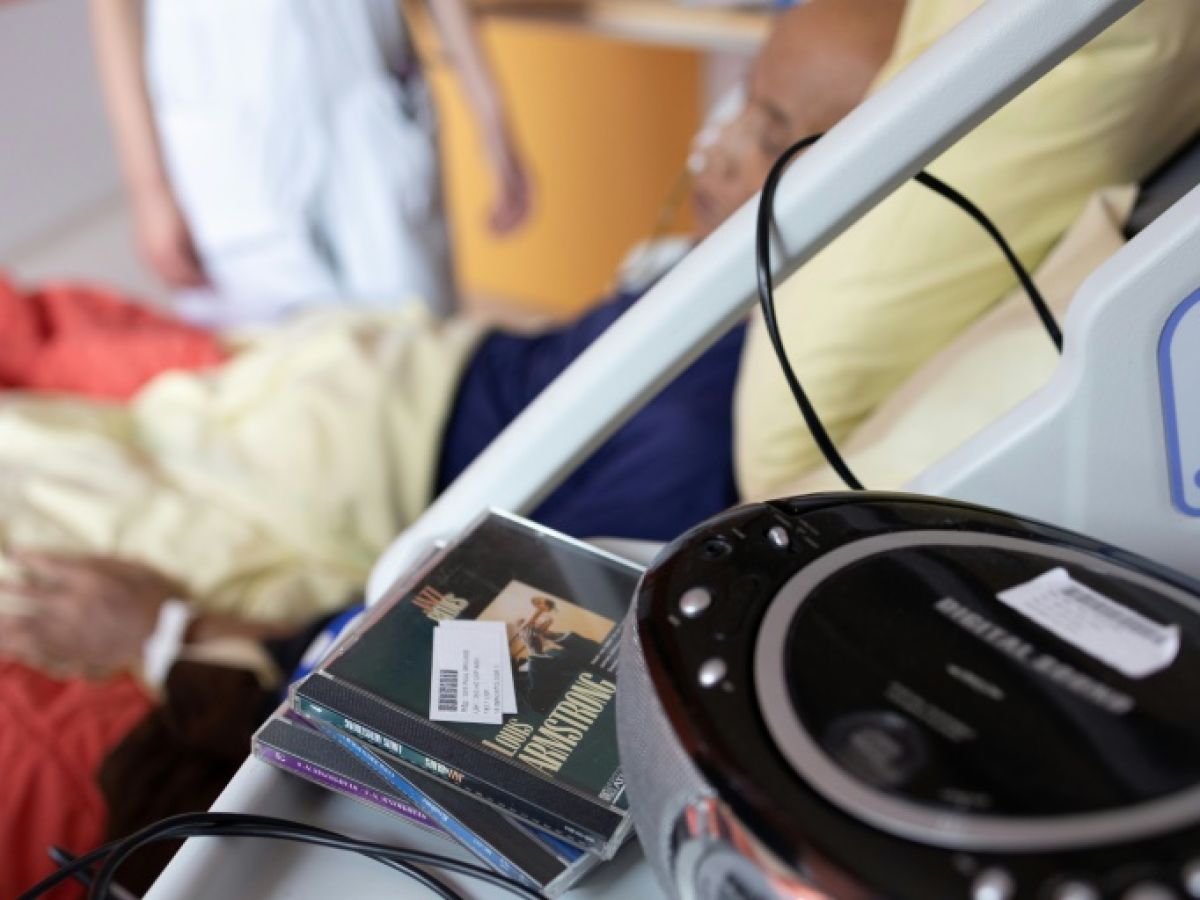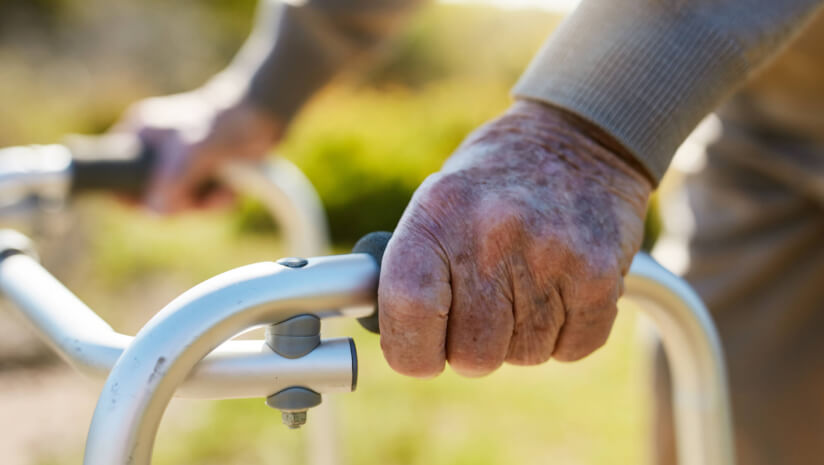They are not there by chance. Nurses, psychomotor therapists, or doctors, these caregivers have chosen to work with patients whose final days they accompany, in public hospitals, in a little-known specialty but "at the heart of care": palliative care.
"It's meaningful work, it's extremely important," Emma Renard, a psychomotor therapist who joined the mobile palliative care team at the Antoine-Béclère AP-HP hospital in the Paris region a year ago, told AFP.
"I wrote my dissertation on it. It was really a desire to work in palliative care, because you spend time with the patient, the families, the teams: you're at the heart of care," she adds.
Faced with a person with a "body experience that can be very complicated", for whom the illness has "turned everything upside down", she will "not seek to restore faculties", but simply to reconnect the patient with "the pleasure of movement: we will be in something very containing, very gentle", she says.
According to the Public Health Code, palliative care is active and continuous care, provided by an interdisciplinary team, aimed at relieving the pain of the sick person, alleviating their psychological suffering, safeguarding their dignity and supporting those around them.

Nurse Emilie Boiffard opted for this specialty 12 years ago, as it was rarely covered during her training: only one module was devoted to it, in three years of study. It attracts "caregivers who want to take the time to do things properly," she says.
Emile and Emma are part of a mobile team that supports patients of all ages with a serious illness until the end of their lives, as well as their families and caregivers from various departments (geriatrics, oncology, etc.) of the hospital.
Because "many caregivers aren't necessarily clear on the laws governing palliative care or on this care in general," notes nurse Cindy Zobda. "Where we intervene, we see that they're struggling," she says.
– “Shadow work” –
In the morning, two members of the mobile team attend department meetings and listen for patients whose health is deteriorating, complicating their care. "It's a shadowy job," admits Dr. Isabelle Triol, who heads palliative care at three AP-HP hospitals: Antoine-Béclère, Paul-Brousse, and Bicêtre, with a smile.

Because doctors can feel a little helpless when faced with elderly patients with multiple pathologies, "who are starting to get tired after a long course" of care where "we have covered everything we can offer them therapeutically," explains internist Emmanuel Dossou.
"We often have our heads down, trying to control the disease, sometimes to the detriment of the patient's quality of life. We have to ask ourselves if it's reasonable to continue," he adds.
Although access to palliative care has been a fundamental right in France since 1999, only one in two terminally ill patients has access to it due to a lack of facilities, caregivers - there is a shortage of around a hundred in the country, according to a parliamentary mission in 2023 - and resources.
On May 27, the National Assembly adopted at first reading a bill aimed at strengthening this care by creating support homes and opening at least one palliative care unit in the 19 departments that do not have one.

At Paul-Brousse Hospital, which has a dedicated unit, Dr. Muriel Chatila leaves the room of a patient she was able to soothe, thanks to hypnosis, while a nasal catheter was inserted. "We are here to make these moments as painless as possible, even allowing people to experience beautiful moments with their loved ones, despite the illness and the approaching death," she says.
"Each patient who arrives is a real encounter. We practice very human medicine, which has a lot of meaning," says Dr. Chatila.
According to the Court of Auditors, six out of ten terminally ill patients require palliative care, or around 380,000 people per year, a figure set to increase "significantly" due to demographic aging.


